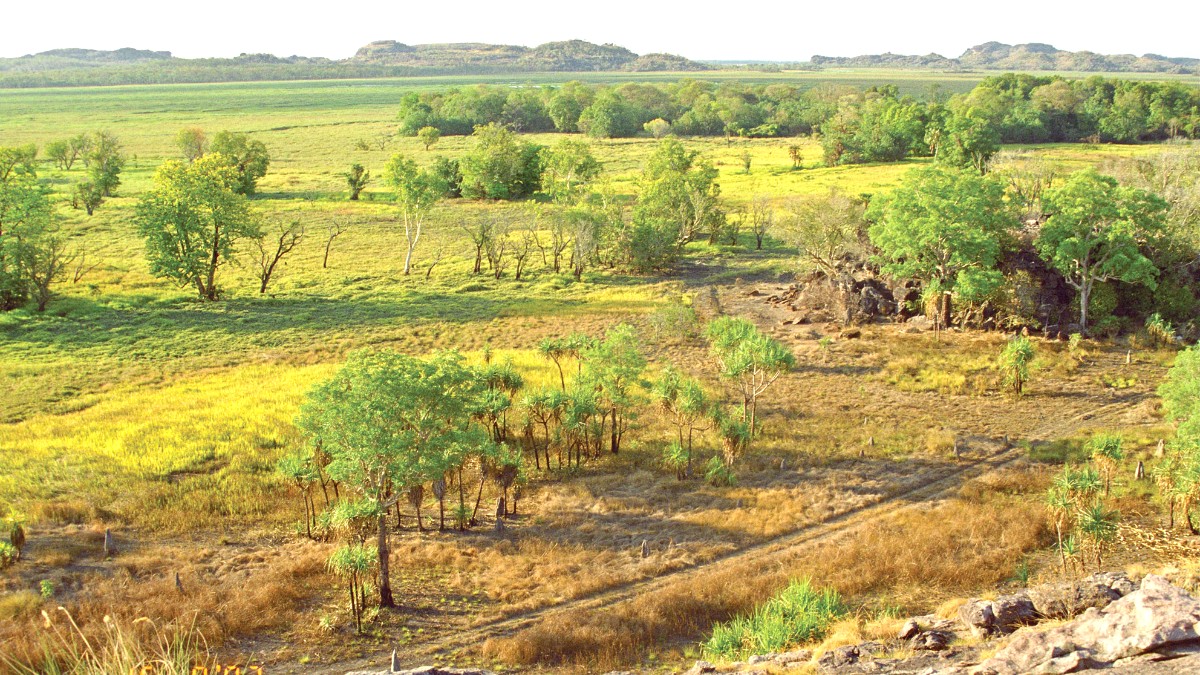
Northern Territory, Australia
All non-Australian citizens need a visa for Australia. The specific visa type depends on nationality and visit purpose.
Passport must be valid for at least six months beyond your planned departure. Your Australian visa links electronically to your passport. Keep notification. Kakadu National Park entry pass required for visitors.
Costs vary widely depending on your travel style, accommodation choices, and selected activities.
Official currency is the Australian Dollar (AUD), symbol $. Major credit cards widely accepted. ATMs available in Darwin, Jabiru, Cooinda. Carrying some cash good for small purchases or remote areas.
European Union and select others. No charge. Multiple 3-month entries over 12 months. Apply online via Australian Department of Home Affairs.
European Union and select others.
No charge, multiple 3-month entries over 12 months.
US, Canada, Japan, Singapore, South Korea. Service charge applies. Multiple 3-month entries over 12 months. Apply via Australian ETA app.
US, Canada, Japan, Singapore, South Korea.
Service charge, multiple 3-month entries over 12 months.
Other nationalities not eligible for eVisitor or ETA, or longer stays. Fees apply. Apply online via Australian Department of Home Affairs.
All other nationalities, or those desiring longer visits.
Fees apply, various stay durations possible.
Budget traveler daily costs (AUD): Accommodation: AUD 30-60 (camping, hostel, basic cabin). Meals: AUD 30-50 (self-catering, basic takeaway). Transportation: AUD 50-80 (share car, fuel, limited tours). Activities/Park Pass: AUD 10-20. Total Daily Estimate: AUD 120-210+.
Mid-range traveler daily costs (AUD): Accommodation: AUD 150-250. Meals: AUD 60-100. Transportation: AUD 80-150. Activities/Park Pass: AUD 50-100. Total Daily Estimate: AUD 340-600+. Luxury traveler daily costs (AUD): Accommodation: AUD 300-600+. Meals: AUD 100-200+. Transportation: AUD 200-500+. Activities/Park Pass: AUD 150-300+. Total Daily Estimate: AUD 750-1600+.
Camping/Caravan Park Site: AUD 10-40. Budget Hotel/Hostel (outside park): AUD 60-150. Mid-range Hotel/Lodge: AUD 180-350. Luxury Lodge (outside park): AUD 800-2000+.
Grocery Store Supplies: AUD 15-30 per day. Cafe/Takeaway Snack: AUD 10-20. Casual Restaurant/Pub Meal: AUD 25-45. Fine Dining Meal: AUD 60-100+.
Car Rental (daily): 2WD AUD 50-100; 4WD AUD 100-250. Fuel (per litre): AUD 2.00 - AUD 2.50+ (remote areas). Organised Day Tour from Darwin: AUD 200-400+. Scenic Flight (30-60 min): AUD 200-500+.
Kakadu Park Pass (7 days): AUD 40 (adult). Yellow Water Cruise (2 hours): AUD 100-120 (adult). Aboriginal Cultural Tours: AUD 100-300+.
Tipping not customary in Australia. Appreciated for exceptional service but not expected.
Travel insurance highly recommended for all visitors. It medical treatment, evacuation, trip cancellation, and lost baggage.
Self-catering: Purchase groceries in Darwin before entering the park. Options limited and more expensive within Kakadu.
Sunburn and Heatstroke: Sun's UV index often extreme. Dehydration: High temperatures and physical activity fluid loss.
For medical emergencies, dial 000. For lost or injured hikers, remain calm, stay put if safe, and try to contact 000 or Parks Australia.
Kakadu’s distinct wet and dry seasons mean clothing choices vary. Layering a good strategy for temperature fluctuations.
Choose cotton, linen, or quick-dry synthetics. These materials help manage heat.
Long sleeves and pants for sun protection and mosquito prevention, especially around dawn and dusk.
Wide-brimmed hat for sun. Light jacket or fleece for cool evenings, specifically June-August.
Quick-drying, light clothing, synthetics preferred. They dry faster after rain or sweating.
Lightweight waterproof or water-resistant rain jacket for sudden downpours. It protection from the heavy tropical rains. Long sleeves and pants for mosquito protection.
Mosquito activity higher in this season. Continue using a wide-brimmed hat for sun protection, even on cloudy days. Bring swimwear for any designated safe swimming spots.
No strict dress codes for tourists, but respectful attire appreciated at Aboriginal cultural sites (covering shoulders and knees).
Sturdy, comfortable hiking shoes or boots with good grip for uneven terrain and rocky paths.
Comfortable sandals or walking shoes for general wear around lodges and campgrounds.
Water shoes for navigating rocky riverbeds or slippery areas near waterfalls. Protect against submerged obstacles.
Having the correct documents in order a smooth travel to and within Kakadu. Keep both digital and physical copies of everything.
While Kakadu a place to disconnect and immerse in nature, some technology and electronics serve navigation, communication, and memory capture.
Australia uses Type I power outlets (three flat pins), 230V, 50Hz. A universal travel adapter is useful.
Your mobile phone should be unlocked for Australian SIM card. Telstra offers the best coverage in remote areas. Expect limited or no signal in many parts of Kakadu.
Portable chargers and power banks important due to limited charging points in remote areas. A high-capacity power bank useful.